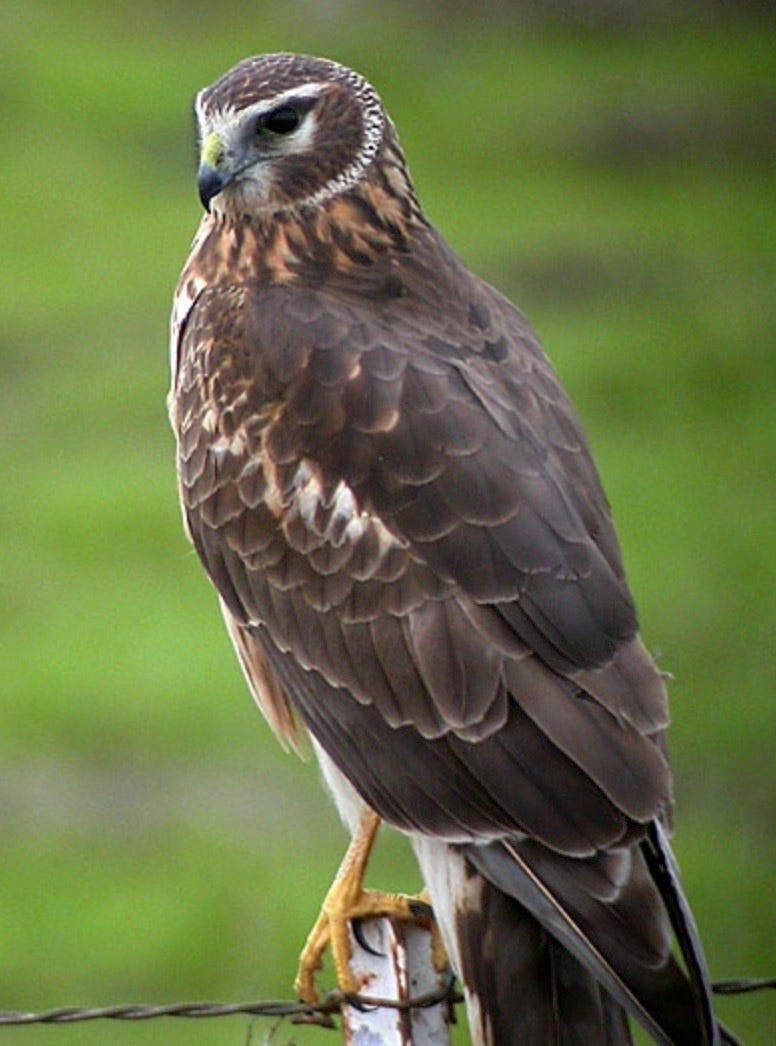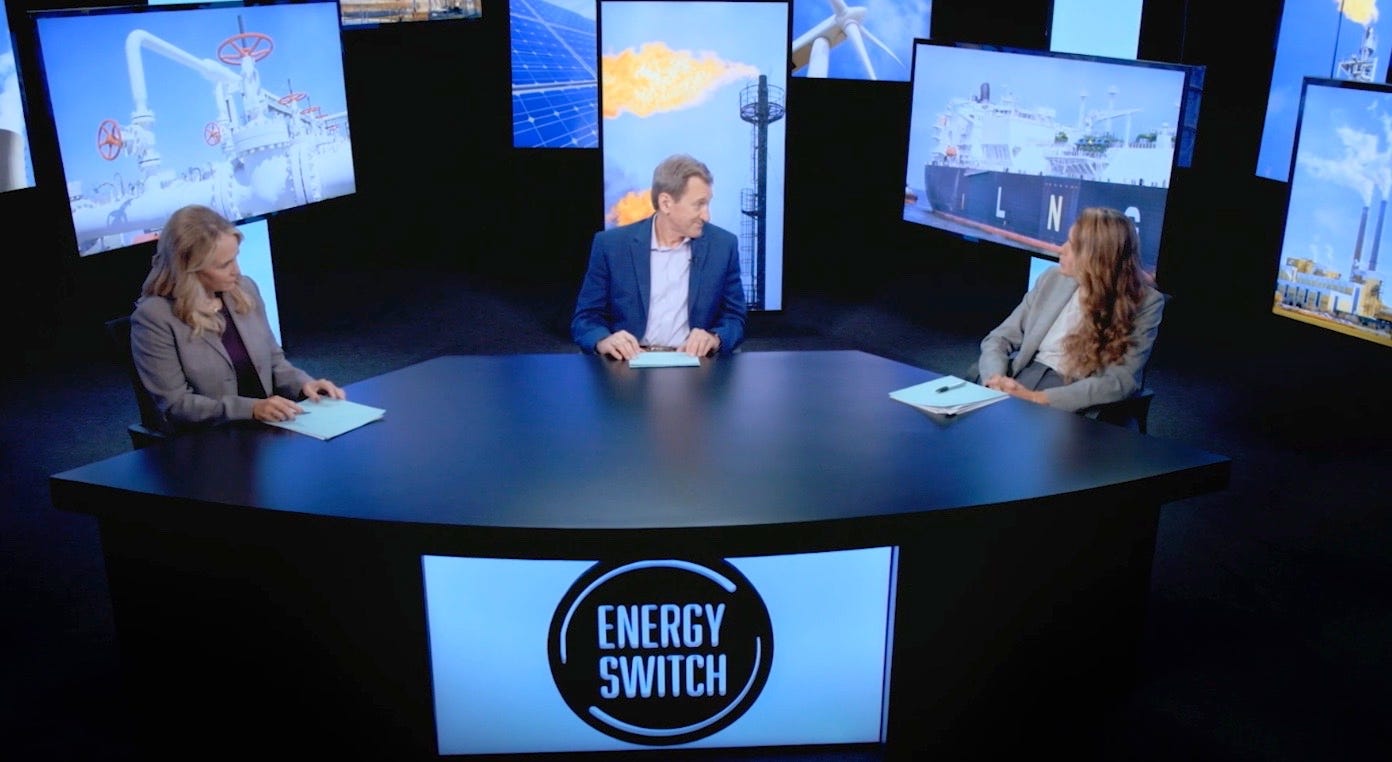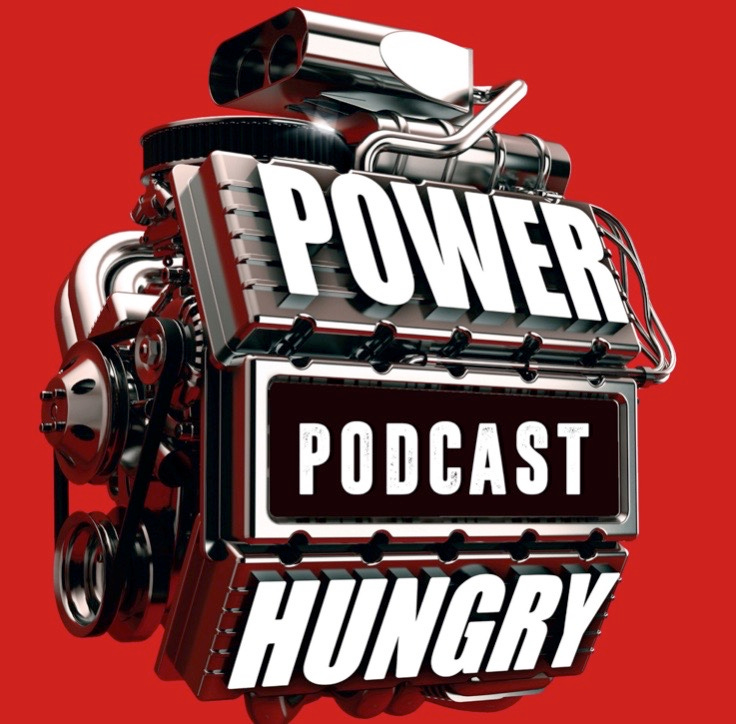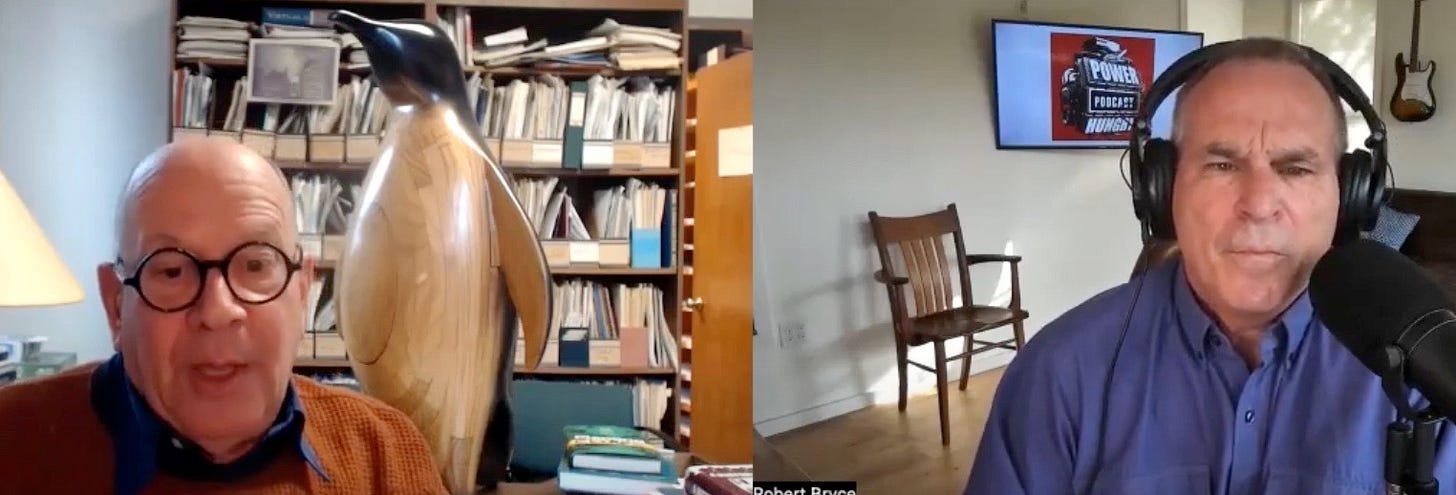“Energy Switch” is must-watch TV, my C-Span segment, Ausubel on "peak human," and Northern Harriers in Osage County
"News" letter #126
I am traveling this week and am preoccupied with a number of projects, including a new documentary I’m working on with my colleague, Tyson Culver. I will be putting out more info about the new project in early 2023. But I can reveal that the film is a follow up to our first film, Juice: How Electricity Explains The World. I am super excited about the project and have been particularly heartened by the support we have been getting from our backers and also by the interviews we’re doing. I also have been doing a bunch of short videos this week, one of which focused on the hype about fusion, that was picked up by Newsweek. But since I’m on the road and have commitments this afternoon, I will keep this epistle short. Four items today:
Ausubel talks about his new work on “peak human”
Northern Harriers in Osage County
The photo of the Northern Harrier above was taken in 2006 in California.
Today, Real Clear Energy published my article on the best TV show about energy and climate. It’s called “Energy Switch.” I began:
One of the reasons why our discussions about energy and climate policy are so shallow is simple: we don’t get to hear many real debates about the issues. Instead, we are bombarded by narrowly focused messaging from NGOs, trade groups, and climate activists who are pushing agendas that will perpetuate their favored industries.
This lack of debate – combined with the innumeracy and scientific illiteracy of policymakers and the general public -- has resulted in a lot of bad energy policies at the local, state, and national levels. That’s why I’m pleased to see the traction that Scott Tinker, who heads the Bureau of Economic Geology at the University of Texas at Austin, is having with his new TV series, “Energy Switch,” which is now available to stream, for free, on PBS.
And I concluded:
The first season of the “Energy Switch” series includes a dozen episodes. The captions for the episodes include the future of nuclear energy, making energy more sustainable, why the US needs an oil and gas industry, the geopolitics of energy, hydrogen, and more. Tinker is an even-handed and laconic moderator, who gives his guest time to make their points.
To be sure, Just Stop Oil’s recent antics or the 200 climate activists who ransacked a French cement plant last Saturday, are getting lots of media attention. But slogans, super glue, and tomato soup aren’t enough. Our society depends on reliable and affordable energy. The current meltdown in Europe shows how bad energy policy can lead to disastrous economic outcomes. Now more than ever, we need more reasoned debate and pragmatic energy policies. If you are interested in the future of our energy and power networks, “Energy Switch” is must-see TV.
Again, here’s a link. Be sure to tune into “Energy Switch.
I was pleased to be on C-Span’s “Washington Journal” last Saturday morning. There were a lot of good questions that came in over the phone and Mimi Geerges was concise and made sure that the callers got to the point. The segment lasted about 45 minutes and it flew by. If you missed it, here’s a link.
Jesse Ausubel, director of the Program for the Human Environment at Rockefeller University
If you have followed my work over the past few years, you will know that I’m a big fan of Jesse Ausubel. He’s one of the most productive and independent thinkers and doers I’ve ever met. And I’m very proud to consider him both a friend and mentor. Jesse is the director of the Program for the Human Environment at Rockefeller University and the recent winner of the prestigious Nierenberg Prize. In his second appearance on the podcast (the first was on October 12, 2021), Ausubel talks about his new work on “peak human” and “peak humans.” We talked about the four dimensions of human performance: the physical (how far and fast can we go?), lifetime (how long can we live and how well?), cognitive (measures of intelligence), and immunity (is our resistance to disease waning?). We also discussed why we may be reaching the limits of human potential, immunity to disease, “nature deficit disorder,” and why -- after a lifetime of being a fan of the New York Yankees -- Jesse has quit watching sports. This is podcast number 152. It was recorded on December 7, 2022. For the audio and transcript, see my website. And as always, the episode is also on YouTube.
Northern Harriers in Osage County
I like watching almost any kind of bird but raptors are among my favorites. I am still learning to distinguish my Hawks from my Harriers, but during a recent visit to Osage County, we saw a number of Northern Harriers (which has the felicitous name of Circus hudsonius). (The photo above was shot in California in 2021 by Frank Schulenberg.) Harriers are beautiful birds. And unlike the Red-shouldered Hawks that we see around our house in Austin, who love to fly in tight quarters in thick forests, Northern Harriers like to hang out in wide open spaces. Allaboutbirds.com says this:
Northern Harriers are slender, medium-sized raptors with long, fairly broad wings and a long, rounded tail. They have a flat, owl-like face and a small, sharply hooked bill. Harriers often fly with their wings held in a dihedral, or V-shape above the horizontal... fly low over the ground when hunting, weaving back and forth over fields and marshes as they watch and listen for small animals. They eat on the ground, and they perch on low posts or trees. On the breeding grounds, males perform elaborate flying barrel rolls to court females... breed in wide-open habitats ranging from Arctic tundra to prairie grasslands to fields and marshes. Their nests are concealed on the ground in grasses or wetland vegetation. In migration and winter, harriers typically move south away from areas that receive heavy snow cover, ending up in open habitats similar to those in which they breed.
I hope you have a great weekend.
Want to help?
Forward this email to your friends and colleagues.
Subscribe to the Power Hungry Podcast.
Rent or buy Juice on iTunes or Amazon Prime.
Buy A Question of Power: Electricity and the Wealth of Nations, give it a good review.
Follow me on TikTok: @pwrhungry
Need a speaker for your conference, class, or webinar? Ping me.












